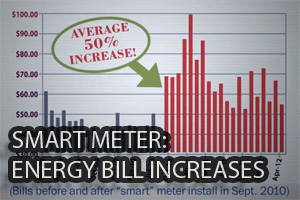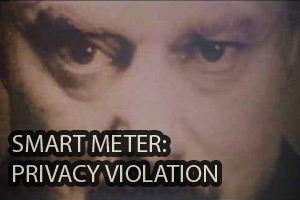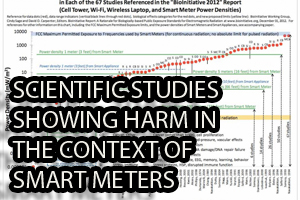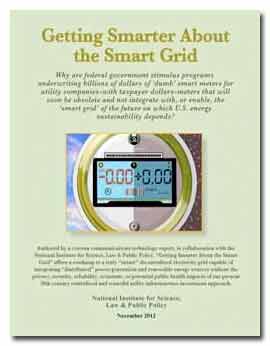Dan Lewis is Senior Energy and Infrastructure Adviser at the Institute of Directors.
The biggest infrastructure project of this government is one most people haven’t heard of – the £11 billion smart meters programme. The goals are to automate gas and electricity meter readings, facilitate easier switching, create a new market for energy data and initiate some sort of two-way smart grid.
The first thing to say is that this programme is not primarily for consumers.
The projected chief beneficiaries, to the tune of £8.26 billion, are the suppliers. They will own the meters and mine the data they produce, while removing a big cost from their balance sheet – manual meter readings and customer billing complaints. Meter manufacturers like the programme too, because the long shelf life of electro-mechanical meters – easily 40 years – would give way to 10 year replacement cycles, interim upgrades and repairs that invariably come with electronic obsolescence.
To their credit, the Government has started to look at cutting costs of the programme. It has also taken on board one of the IoD’s suggestions from our paper earlier this, Not too smart – will smart meters be the next IT disaster?, by trialling alternatives to buying tens of millions of stand-alone “In Home Display Units”, like apps on smartphones and tablets, potentially saving around £1 billion throughout the lifetime of the programme.
Consumers are funding the programme through their bills. Unfortunately, the benefits for them – put at £5.7 billion in energy savings – are lower than the costs. Moreover, these energy savings are based on assumptions that we can now see are questionable or just flat wrong.
Take energy prices. In September 2013, DECC forecasted a mid-range oil price of $112.7 in 2015. The real figure now is lower than $50. The department’s forecast for 2020 is $119, when all crude future prices for that year are below $60. On natural gas prices too, DECC were well out. The 2015 forecast was for an average of 69.7p per therm, but so far we are looking at well below 50p. To be fair, no one is that good at forecasting oil and gas prices. But these significantly lower prices matter, because with cheaper energy prices, the economic benefits of saving energy and switching consumers from smart meters are much lower.
The case for consumers further degrades when you realise, as the Auditor General in the State of Victoria in Australia recently did, that there is no mechanism in place to transfer the benefits accrued to the suppliers back to the consumers. How many British bill payers would choose to spend £11 billion to get back £5.7 billion in energy savings?
If we must proceed with this programme as is, the only way to reverse this transfer of wealth is for the utilities, perhaps under the eye of Ofgem, to agree to return the benefits to consumers in lower bills.
But that’s far from all from what’s wrong. As someone who has been following this programme for some time, I was dismayed (if not altogether surprised) to learn that we are now facing another several years of delay in the rollout of smart meters, making the 2020 deadline all but impossible. The root cause is the lack of interoperability – the first generation of smart meters, known as SMETS1, generally only work for the supplier that installed them, meaning that consumers can’t switch without replacing the meter. Like the F-35 Fighter jet programme, it is the same classic project management error called concurrency – starting production and deployment before the design has been finalised and the testing completed.
The next generation of smart meters, SMETS2, are meant to solve these problems. But it does not look like they will be in mass production in time for the launch of the Data Communications Company in April 2016 – the platform for suppliers to share information and for customers to switch through. So the mass rollout date is being pushed further into the future. This will only increase costs, as more installation engineers will have to be employed for a shorter period at a higher price.
This is all important information that should be shared with consumers who are constantly being told to switch to smart meters. A key finding of the recent Competition and Markets Authority investigation was that consumers do not switch enough to receive lower bills. But if they can’t switch without and keep the same smart meter, shouldn’t the industry be bending over backwards to tell consumers that?
Instead though, SmartEnergy GB, the supplier-funded cheerleaders for the smart meter rollout, has seen fit to start sending cuddly toys of their mascots, called Gaz and Leccy, to the parliamentary offices of MPs. I hear that many of them were less than impressed by this show of profligacy with bill payers’ money and with nowhere to put them, dropped Gaz and Leccy straight in the bin.
The shame is that smart energy actually does have a great future and this will happen with or without the smart meter programme. As explained by Matt Ridley recently, technology can advance quite independently without central direction. The key is to ride rather than drive the innovation wave, and this is certainly true of smart energy. Half-hourly automated meter reading has been possible since 1994, and companies are coming up with cheaper alternatives. First Utility have just released a point-and-shoot app for easy and accurate meter readings, and the Loop Energy Saver allows consumer install gas and electricity monitors that work with existing meter stock.
We could also learn from China, where simplified powerline communications smart meters are being installed at a cost of around $35 each. Britain’s smart meter programme solves nothing that has not already been invented and done far cheaper before.
The latest delay is an opportunity for the Government to order a consumer focussed value-for-money review. It should have two simple objectives;
- Find out how to lower overall costs
- Explore how to transfer more, if not all, of the benefits back to consumers
We have nothing to lose except billions in over expenditure.
Source: Dan Lewis: Smart meters are a bad deal for consumers
















